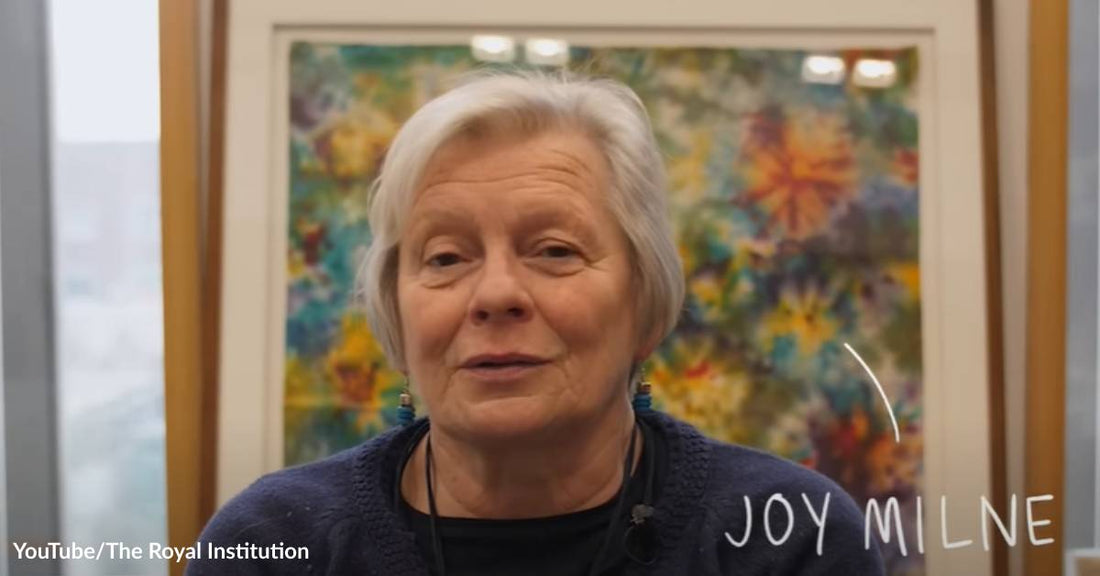Purchase any item in Our Wildlife Collection and we'll send an extra donation! Shop the Collection!
Woman Who Can Sniff Out Parkinson’s Disease Inspires Development of Skin-Swab Test with 95% Accuracy
Doris de Luna
"He had this musty, rather unpleasant smell, especially round his shoulders and the back of his neck, and his skin had definitely changed," said Joy Milne of her husband, Les, who was later diagnosed with Parkinson's disease.
Joy, a retired nurse from Perth, first noticed the change in her husband's smell and skin 6 years before his diagnosis of the degenerative brain condition. But she was able to associate her extraordinary sense of smell with Parkinson's only after she and her husband joined a support group in the United Kingdom, where they met people with a similar distinct odor.
 Photo: YouTube/The Royal Institution
Photo: YouTube/The Royal InstitutionAfter Les died in 2015, Joy had a chance to meet scientists at a talk whose curiosity was raised by her story. Dr. Tilo Kunath, a Parkinson's UK fellow at the school of biological sciences at Edinburgh University, and his colleagues decided to test her.
Joy detected 12 out of 12 of the Parkinson's samples correctly, which means her ability to smell Parkinson's is about 100% accurate!
The result has inspired a team of researchers at the University of Manchester to develop a skin swab test for Parkinson's with Joy's help. The test, under laboratory conditions, could detect the disease with 95% accuracy.
 Photo: YouTube/The Royal Institution
Photo: YouTube/The Royal InstitutionUsing sebum, the oily substance produced by the sebaceous glands to serve as a protective coating on the skin's surface, the researchers analyzed the samples they obtained from the backs of patients with Parkinson's and a healthy group of individuals. Through mass spectrometry, the team was able to discover that 500 out of the more than 4,000 compounds in the samples were different between those patients with Parkinson's and the control group.
Professor Perdita Barran, who led the research in the development of the skin swab test, is looking forward to creating a confirmatory test that a general practitioner could utilize.
"At the moment, we have developed it in a research lab, and we are now working with colleagues in hospital analytical labs to transfer our test to them so that it can work within an NHS environment," she said.
 Photo: YouTube/The Royal Institution
Photo: YouTube/The Royal InstitutionJames Jopling, the Scotland director of Parkinson's UK, also believes that the discovery could improve the quality of life of those people with the brain disorder.
"Currently, with no definitive test, people have to wait months or years to be diagnosed, so the fact that you could get the treatment and support you need and that researchers could begin new treatments is incredibly important," he remarked.
Currently, Parkinson's disease afflicts 1 - 2 people per 1,000. There is no available cure for the disease, which is now the leading cause of death and disability among all neurological disorders. Among the environmental factors that increase the risk of Parkinson's are air pollution, industrial solvents, and pesticides.
https://www.youtube.com/watch?v=Xjo2M-XMYfs


